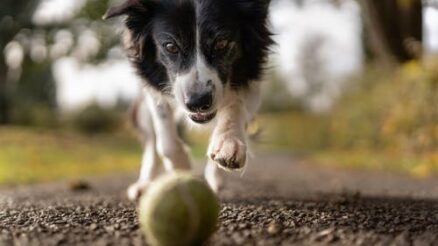Puppies explore their surroundings by placing everything they can find in their mouths. Although this is typical behavior, specifically in teething puppies, it can be bothersome and even harmful if your dog cheats on the wrong things. Puppy-proofing might be time-consuming and pricey, but it’s well worth it to ensure your pet’s safety.
Vital Ways to Puppy-Proof Your Home
Puppies, like peculiar kids, can get involved in things that aren’t great for them, including biting on your shoes or entangling electrical lines. It is essential to “puppy proof” the parts of your house where the puppy will hang around before bringing the dog home.
By doing this, your new dog will always be safe and pleased, even when you can not be there to monitor them. Follow these guidelines to make your house as safe and secure as possible.
Put Human Food Away From Them
A dog needs only a short period to discover precisely where the treats are kept. The dog’s food and any human foods, especially those harmful to dogs, must be hidden out of sight while you can’t watch it to prevent accidents, overeating, and possible poisoning.
Likewise, giving them human food, mainly cooked bones, is not good because that can cause choking and other health issues for your dog’s mouth, throat, and intestines. In severe circumstances, a surgeon might perform vet surgery to remove it.
Take Care of Electrical Wiring
Ensure your puppy can’t chew or bite through any electrical cords in your home by hiding them or taping them down. Consider whether or not purchasing outlet covers would be a wise move. This will prevent your puppy from being electrocuted and may also prevent you from spending on expensive repairs or replacements.
Give Them Space
Your dog needs a “safe zone,” such as a crate, pen, or a comfortable sofa in the basement, where they may feel secure while you’re away. There are various scenarios in which a crate could be helpful, such as while taking a trip with your dog, taking them to the groomer, or waiting for a couple of hours at the veterinarian.
While preparing to puppy-proof your home, you must also consider providing your puppies routine dog vaccines against any health problems that may develop.
Install a Pet Gate
Dog gates are one more fantastic tool for keeping your new puppy protected. Dog-friendly floor covering and a few toys can keep your puppy from chewing on non-essential stuff while you work on training it. Adjustable plastic and metal versions are extensively offered at pet shops, although they can be simple and attractive.
Ensure the gate is high enough that your puppy can’t leap over it, and the top is rounded to protect its paws. A typical issue is that when left alone, puppies enter into a “panicked state” and start biting the pet gate. As a result, getting your pet’s teeth checked by a veterinarian dentist that offers pet dental care services is vital.
The Takeaway
Bringing a puppy into your home for the first time might be quite the adjustment, primarily if you’ve never possessed a dog. Get used to laughing at silly things, but your primary focus should be keeping your new pet as safe as possible. If you and your new buddy follow these guidelines, you can enjoy many happy years together without experiencing any anxiety.


